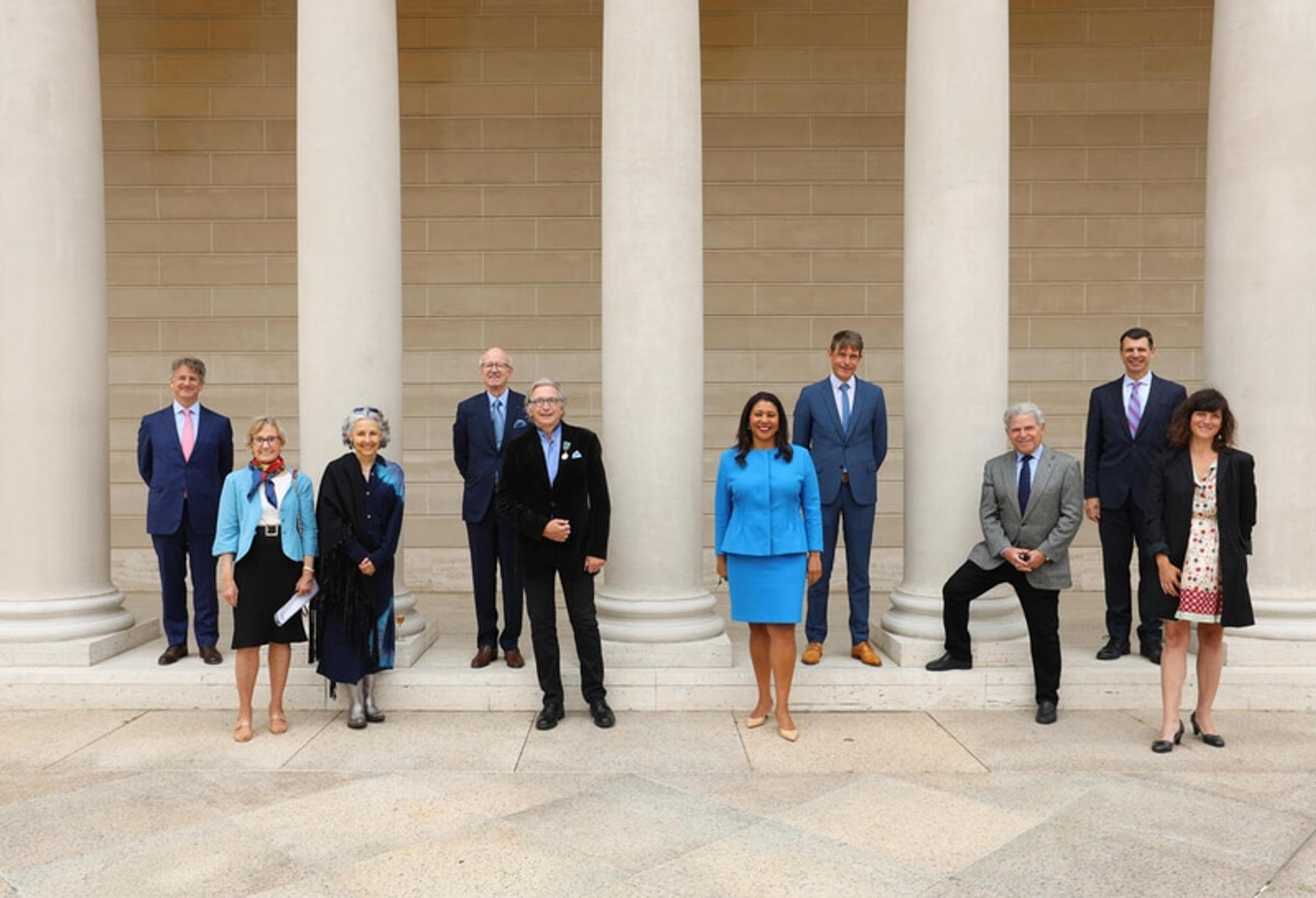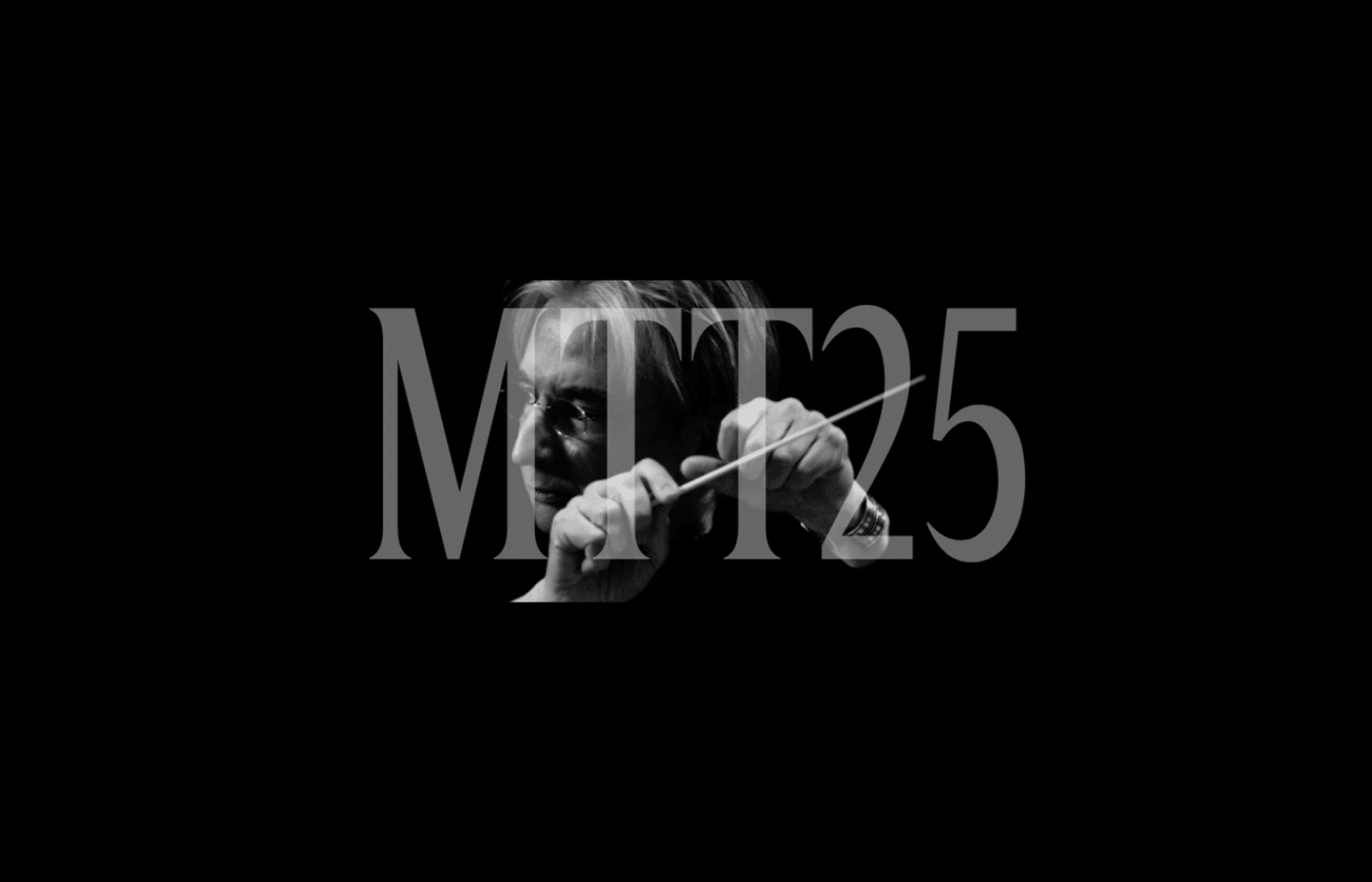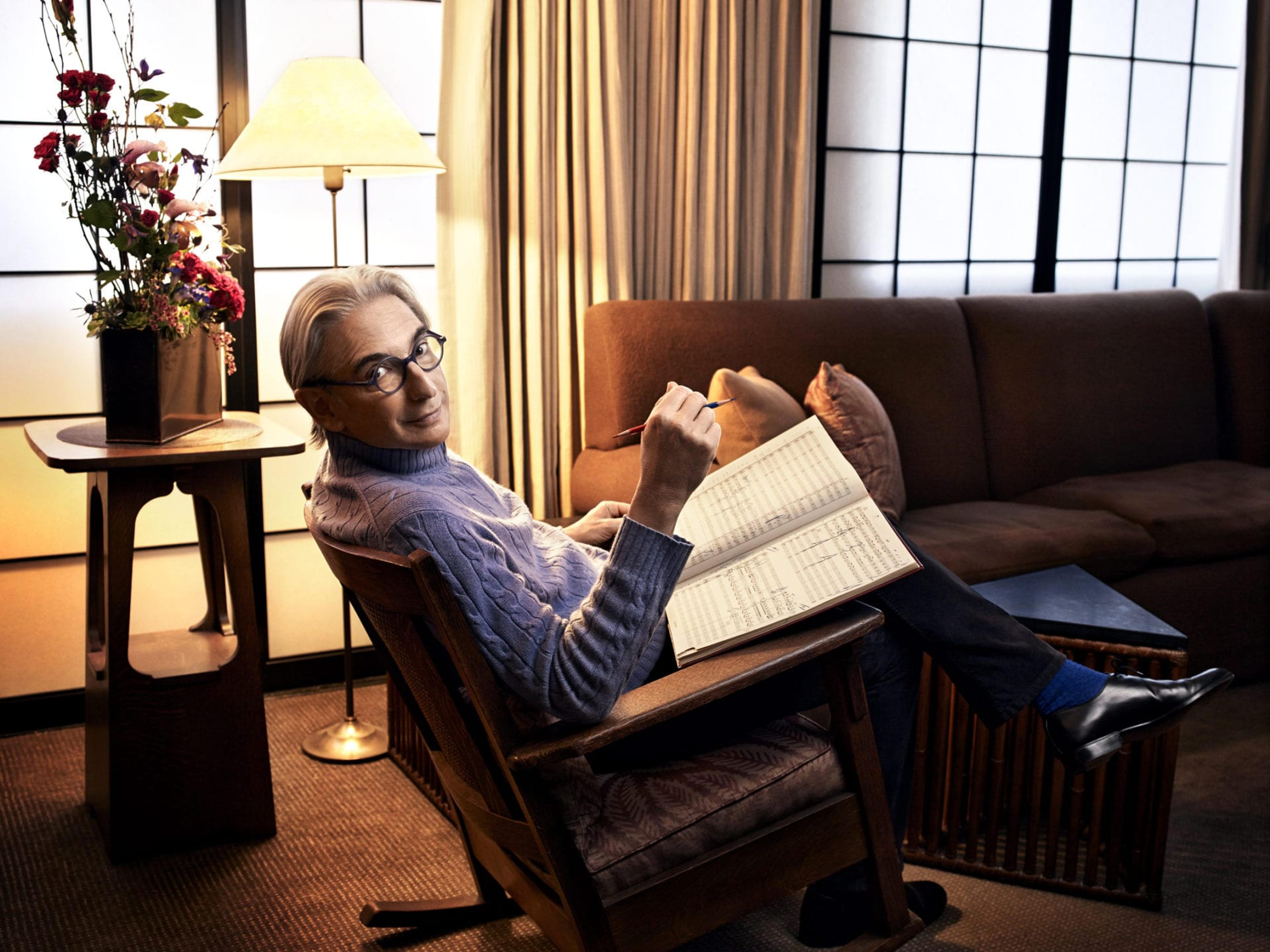MichaelTilson Thomas


News
- 02 April 2024
Michael Tilson Thomas appointed Distinguished Professor of Music at the San Francisco Conservatory of Music
Read full article - 09 May 2022
Michael Tilson Thomas honoured with named concert hall
Read full article - 24 June 2020
MTT named Officer in the French Ordre des Arts et des Lettres
Read full article - 04 June 2020
Michael Tilson Thomas' 25-year tenure as Music Director celebrated by San Francisco Symphony
Read full article - 09 January 2020
World premiere for Michael Tilson Thomas: Meditations on Rilke
Read full article
Press
MTT with the LSO, Christian Tetzlaff Violin
Barbican, LondonMay 2023There is a sense that every concert the London Symphony Orchestra gets to give with its conductor laureate, Michael Tilson Thomas, is now a gift – this evening of Brahms came a little over a year after the announcement that he was being treated for an aggressive form of brain cancer. Yet if Tilson Thomas’s own dynamic energy now needs to be husbanded to some extent, this did not translate into any loss of momentum or intensity in the orchestra’s performance: small gestures – a lean towards the cellos here, a shimmy of the fingers to fade out the brass there – were enough to shape the music into the kind of long, elastic lines that make Brahms’s notes glow
- The Guardian
- 22 May 2023
MTT with the Los Angeles Philharmonic
Walt Disney Concert HallJan 2023The final Adagio stopped time, for a full half hour. Rather than try to wring meaning from every phrase, Tilson Thomas seemed content to maintain his hypnotic slow beat and let the strings bask in the golden-hour harmony. The coda was eerily calm, with phrases, chords, and single notes suspended like thin brushstrokes on a white canvas. Tilson Thomas has long admired the modernist master Morton Feldman, who composed at the edge of silence. The final page of the Ninth came across, enthrallingly, as a prophecy of Feldman, of music’s future. Without words, Tilson Thomas was teaching one more lesson through the music that he loves.
- The New Yorker
- 30 January 2023
MTT conducts the Boston Symphony Orchestra
Tanglewood, BostonAug 2022Michael Tilson Thomas had just brought the first movement of Copland’s Symphony No. 3 to a radiant close here at Tanglewood on Saturday night when applause broke out at the back of the Shed.
- The New York Times
- 01 September 2023
MTT with the LSO, Lukáš Vondráček piano
Barbican, LondonMay 2022There was a copy of the score on the conductor’s lectern, but MTT didn’t look at it through the first three movements. When he reached the celebrated Adagietto (think Visconti’s film of Death In Venice), he opened it, although he didn’t pay it much attention. That movement’s painful longing felt especially poignant, while the finale exuded carnivalesque vigour. The standing ovation that followed was unanimous, prolonged and utterly heartfelt.
- The Standard
- 16 May 2022
MTT debut with the Czech Philharmonic
Rudolfinum, PragueJun 2022The conductor was all business and the music was as vital and captivating as anything the orchestra has played this season." Schubert’s [C major Symphony] tends to dominate any program, but in many ways Copland’s [Appalachian Spring] ballet suite was more interesting, mostly because of Tilson Thomas’ expert hand. It didn’t sound like a European orchestra playing American music. It sounded like music straight from the New World, fresh and thrilling, played with the optimism and exuberance that characterizes American orchestras. Tilson Thomas’ technical skills and long experience with the piece lent it authority and depth. The orchestra’s Romantic roots gave Tilson Thomas plenty of latitude with the Schubert symphony, which he managed to make both monumental and graceful. The grace was in the close attention he paid to the wealth of fine details and a lighthearted approach that kept the music buoyant and animated, even in the percussion-heavy passages." [...] no one connects with an audience like Tilson Thomas.
- BachTrack
- 10 June 2022
MTT's 'Meditations on Rilke' World Premiere with the San Francisco Symphony
Davies Hall, San FranciscoJan 2020To the world of musical mashups we can now add the Schubertian cowboy song, a gentle but rhythmically charged ditty full of sentiment. It’s a hybrid that already existed in theory, but it took Michael Tilson Thomas to actually conjure the thing into being. The spirits of both Schubert and Mahler infuse the beautiful fourth song in Thomas’ orchestral song cycle “Meditations on Rilke,” which had its world premiere in Davies Symphony Hall on Thursday, Jan. 9. As sung in a glowing performance by mezzo-soprano Sasha Cooke with the San Francisco Symphony, this was music of quiet generosity, with lyrical melodies that seemed to caress the text. Rilke’s poetry has long been a talisman for Thomas, a repository for a range of emotional responses. But the six songs of “Meditations” seem, on a first encounter, to be shaped even more directly by his catalog of personal musical reference points. As Thomas laid them out in a brief preperformance remark, these are chiefly Schubert, Mahler and Berg, all of whom play an influential role in shaping the score. But they do it with an American cast of mind, as exemplified by the burst of honky-tonk piano that opens the cycle. The populist frankness that results in some of the songs can at times sit uneasily with Rilke’s fragrant, distinctively German prosody. (Schubert is, perhaps surprisingly, a more congenial American tourist than Rilke, and Mahler actually spent significant time in New York late in life.) But when Thomas puts his own distinctive spin on the material, the results are invigorating. This is particularly true in the fifth song, “Imaginärer Lebenslauf” (“Imaginary Biography”), a duet between Cooke and baritone Ryan McKinny, who otherwise alternate songs. The song begins with a ferocious swirl of impulsive rhythmic motion, evocative of the energy and freedom of early childhood. Soon, as in the poem, complications set in — struggles, disappointment, doubt — all of which are reflected in the music without losing any of its urgency or vigor. The vocal lines intertwine with winning intricacy, and the surprise ending, a literal deus ex machina, is a doozy. Berg’s characteristic blend of Romantic ardor and angular melody is harder to pull off at second hand, and the neo-Bergian writing of the first and last songs struggled to make an effect, especially in McKinny’s somewhat tentative account. But there are other treasures scattered throughout the cycle — the crystalline text-setting of the second song, or the inventive orchestral textures that adorn most of the songs as preludes and postludes.
- San Francisco Chronicle



